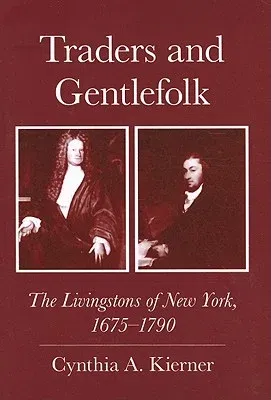Including among their number a signer of the Declaration of Independence
and the founder of an ironworks, the Livingstons were a prominent family
in the political, economic, and social life of colonial New York.
Drawing on a rich array of sources, Cynthia Kierner vividly recreates
the history of four generations of Livingstons and sheds new light on
the development of both the elite ideology they represented and of the
wider culture of early America.
Although New York's colonial elite have been considered self-interested
political intriguers, Kierner contends that the Livingstons idealized
gentility and public-spiritedness, industry and morality. She shows how
New York's most successful traders became gentlefolk without abandoning
their entrepreneurial values, how they forged a distinct culture, and
how the Revolution ultimately occasioned the rejection of elite
political authority.
Traders and Gentlefolk focuses on the lives of four members of the
family: Robert Livingston, a Scottish emigrant who, with his wife Alida
Schuyler, attained substantial political influence and acquired
Livingston Manor; their son Philip, whose outstanding commercial talents
secured his descendants' financial security; Philip's son, William, an
outspoken civic leader and energetic supporter of American independence;
and Robert R. Livingston, a jurist and diplomat whose aristocratic
temperament prevented him from playing a vital role in
post-Revolutionary politics.

